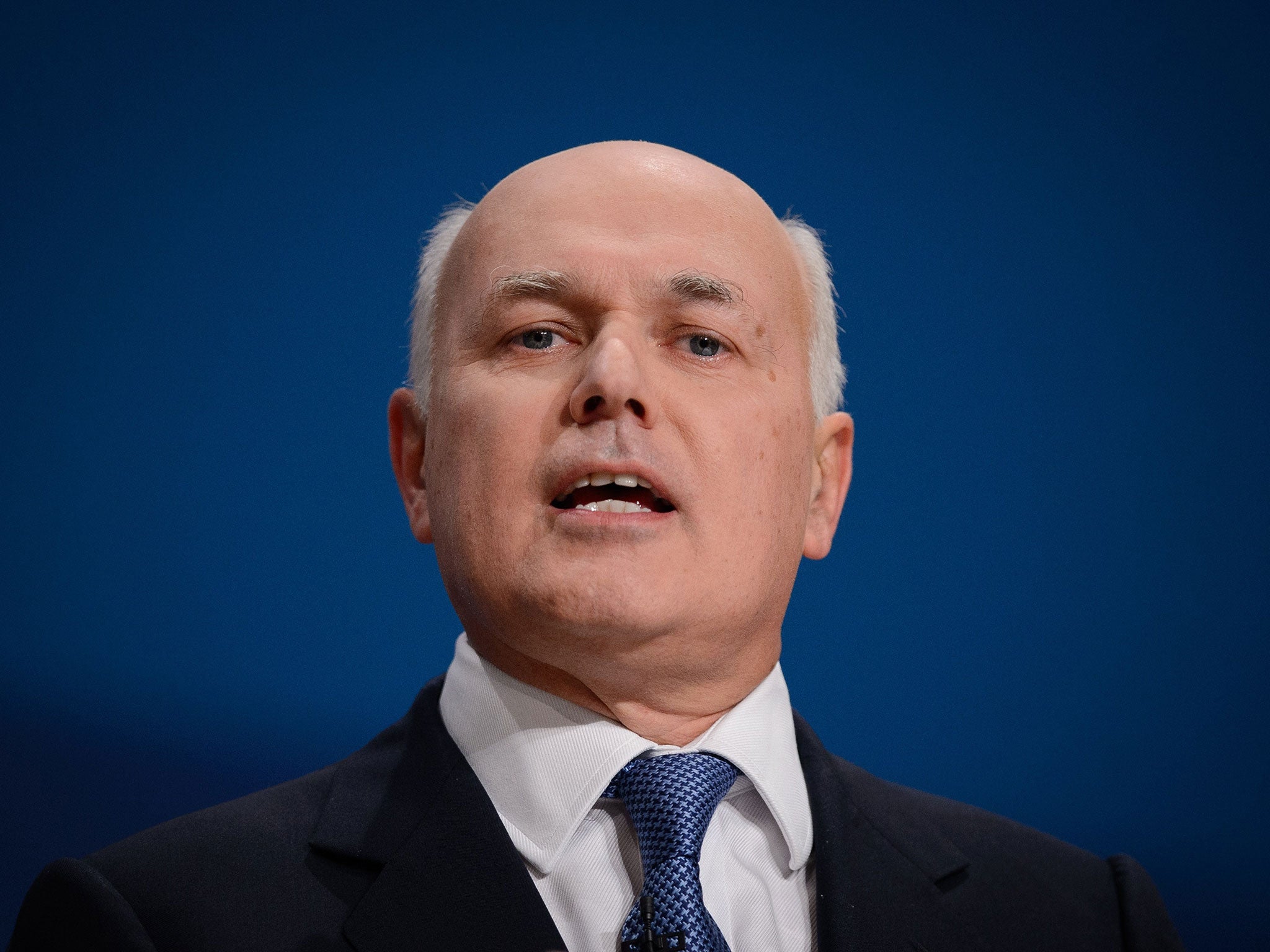DWP's disability benefits delays ruled 'unlawful' and 'unacceptable' by High Court
The court ruled the payments took an 'unlawful and unacceptably long time'

The DWP took an "unlawful and unacceptably long time" to make social security payments to two unnamed disabled people, the High Court has ruled.
The pair waited nine months before they received any payments, a delay they said left them reliant on food banks and high-interest payday lending.
The benefit in question was the Government's new "Personal Independent Payment" (PIP) which replaces the previous Disability Living Allowance.
There are 78,700 outstanding claims for PIP, according to official figures.
It is not unusual for claimants to wait months to hear back about whether their claim has been accepted.
Over 3,000 of current outstanding claimants have waited more than a year and nearly 23,000 have waited more than 20 weeks.
An independent government-backed review of the new benefit presented to Parliament last year found that backlogs in the assessment process had had a "major impact" on claimants' lives.
"The primary focus of early comment and attention on PIP has been the unfortunate reality of long delays and backlogs in the assessment process," the report's authors wrote. "These have had a major impact on many claimants for PIP so far."
The review said claimants' experience of the system needed to be improved, that the claiming process needed to be clarified, and that the benefit needed to be made fairer and more consistent.
The disability charity Scope acknowledged that delays had been reduced since the new benefit's launch but questioned how planned cuts to the welfare budget would be made without impacting upon those with disabilities.
“This judgement demonstrates the importance of extra costs payments to disabled people," Elliot Dunster, head of policy, research and public affairs at the charity said.
“Life costs more if you are disabled. Scope research shows that this adds up to on average £550 per month. Extra costs can make it extremely hard for disabled people to pay the bills. Every day without them is another day unable to afford the essentials in life.
“It’s positive that delays have been dramatically reduced. As speculation grows about where the Chancellor will find his promised £12 billion savings from the welfare budget, disabled people are looking to him to protect the financial support they receive.”
What does five more years of the Tories mean for Britain?
Show all 8PIP is a working-age benefit and helps with extra costs caused by long-term ill-health or disability.
The judge concluded that the delay in both cases was "not only unacceptable, as conceded by the defendant [the DWP], but was unlawful".
In a statement handed to the Independent the DWP did not directly address the judge's ruling that the delays were unlawful and instead focused on the fact that human rights law was not found to have been breached.
“The Court has rightly dismissed the claimants' absurd suggestion that their human rights had been breached. As a result they are not entitled to damages," Minister for Disabled People, Justin Tomlinson, said.
“We have taken decisive action to speed up PIP waiting times and we are pleased the Court has recognised the huge progress made. The average new PIP claimant now waits only seven weeks for an assessment.”
“In my judgment, the delay in claimant C’s case from 9 September 2013 until the determination of her benefit on 24 October 2014 of some thirteen months and the delay in claimant W’s case from 3 February 2014 until December 2014 of some ten months was not only unacceptable, as conceded by the defendant, but was unlawful," the judge said.
The Department recently drew up proposals to reduce payments to some disabled people under a scheme designed to help cover the costs of work.
Subscribe to Independent Premium to bookmark this article
Want to bookmark your favourite articles and stories to read or reference later? Start your Independent Premium subscription today.

Join our commenting forum
Join thought-provoking conversations, follow other Independent readers and see their replies